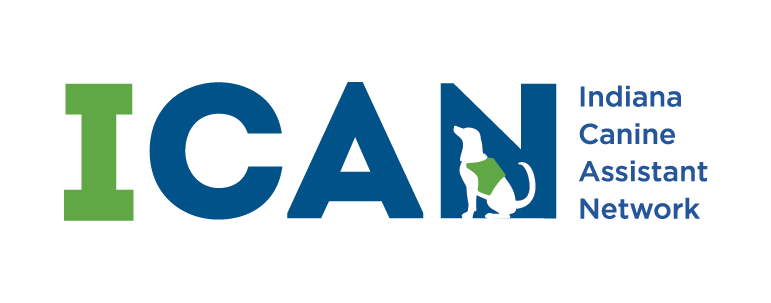How to Teach Kids About Service Dogs
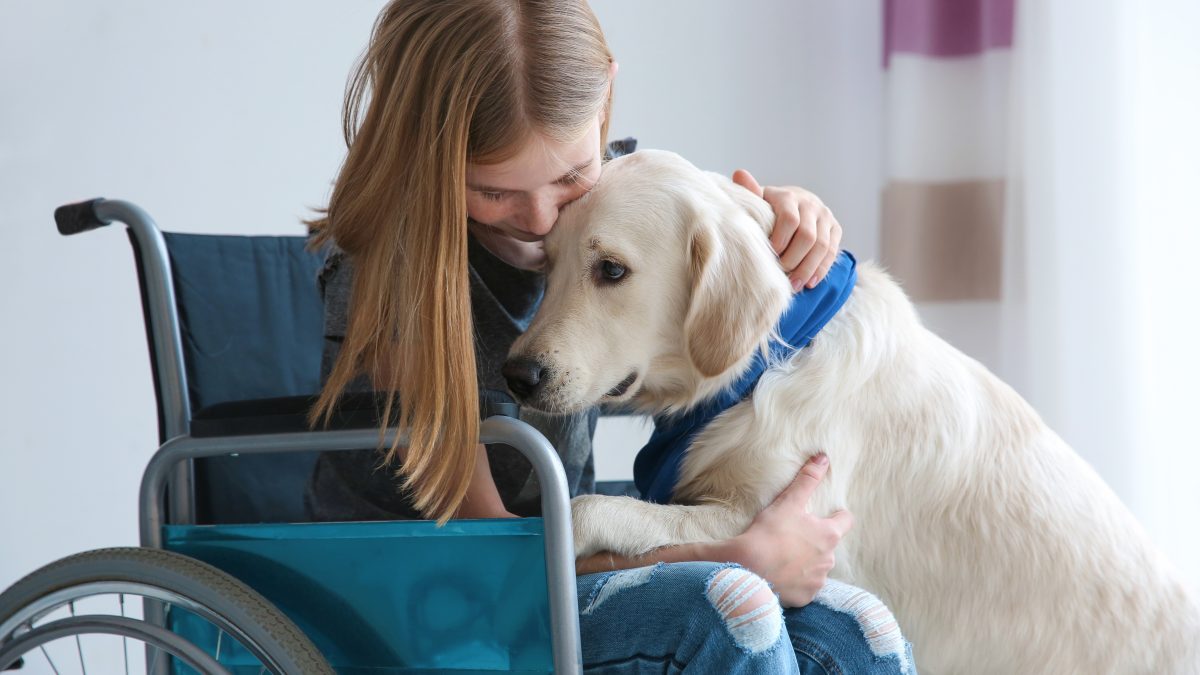
Children are naturally curious and may even be excited to see a working dog, so learning how to teach kids about service dogs is important in providing respect and safety to service animal teams.
Follow these tips to help educate children on the important job that service dogs do and how to make their job as easy as possible!
Educate children on the importance of service dogs.
Children may not initially understand why someone needs to have a dog in public. Be sure to point out that service dogs have an essential job to do and that they are not the same as pet dogs.
It is important to try to explain to children that a service dog is in charge of the handler’s independence. Educate children on the idea that a service dog helps their handler in the same way that other adaptive equipment such as a wheelchair, walker, or hearing aids also help people with disabilities.
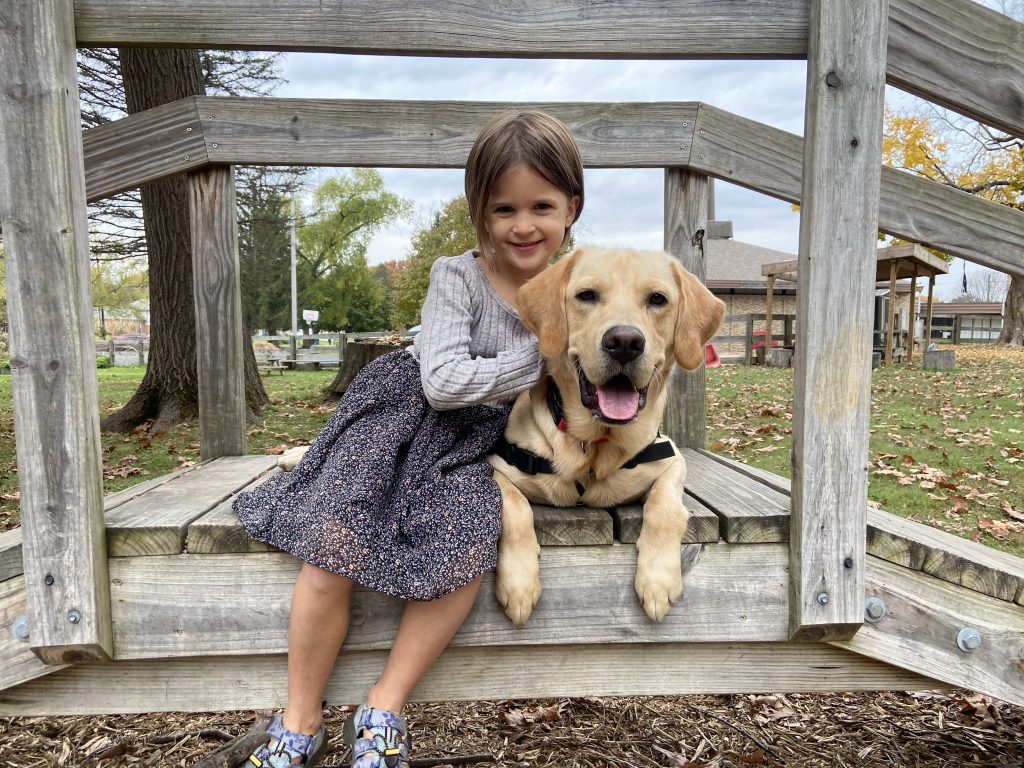
Teach kids how they can identify a service dog.
Teaching kids some potential service dog identifiers will encourage them to respect service dog teams in public places. Although it is not legally required that service dogs wear any identification, many do! Things like a labeled vest or special harness with a handle are common things that service dogs wear that other dogs do not.
Avoid teaching children that service dogs can be identified by a handler that is in a wheelchair or has another visible disability, because this is not always the case! Many disabilities are invisible—such as PTSD or diabetes—so it’s best not to infer that a dog is only a service dog if the handler has an obvious disability.
In general, teach kids that if they see a dog in a public place where dogs aren’t usually allowed, it’s best to assume it is a service dog and to be respectful and considerate to the team. Even if the dog is laying down or asleep and doesn’t look like he is working, a service dog is always on duty when with their handler.
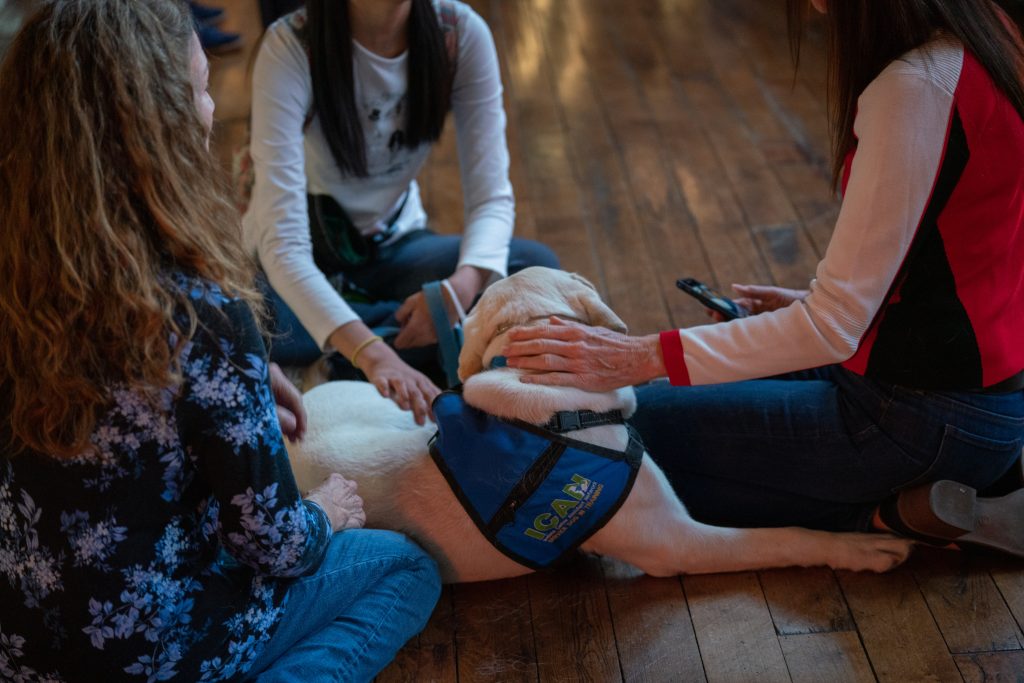
Instruct children on how to approach and interact with a service dog (or any dog).
Many of the same rules apply when approaching a pet dog and a service dog. You should instruct children to always ask the owner before petting an animal, especially a service dog, and teach them that it’s okay if the owner declines.
If the owner agrees to let the child pet their dog, be sure that the child knows how to interact with dogs safely. Always encourage the child to avoid running up to, screaming, or hugging the dog. Many dogs feel nervous about these things, especially with people they don’t know.
It is also important to explain to children that they must closely follow any directions the owner may give. For example, some owners may ask you to stop petting if their dog jumps or to only pet the dog on their back. Service dogs have specific rules that they must follow so that they can do their job effectively and keep their client safe.
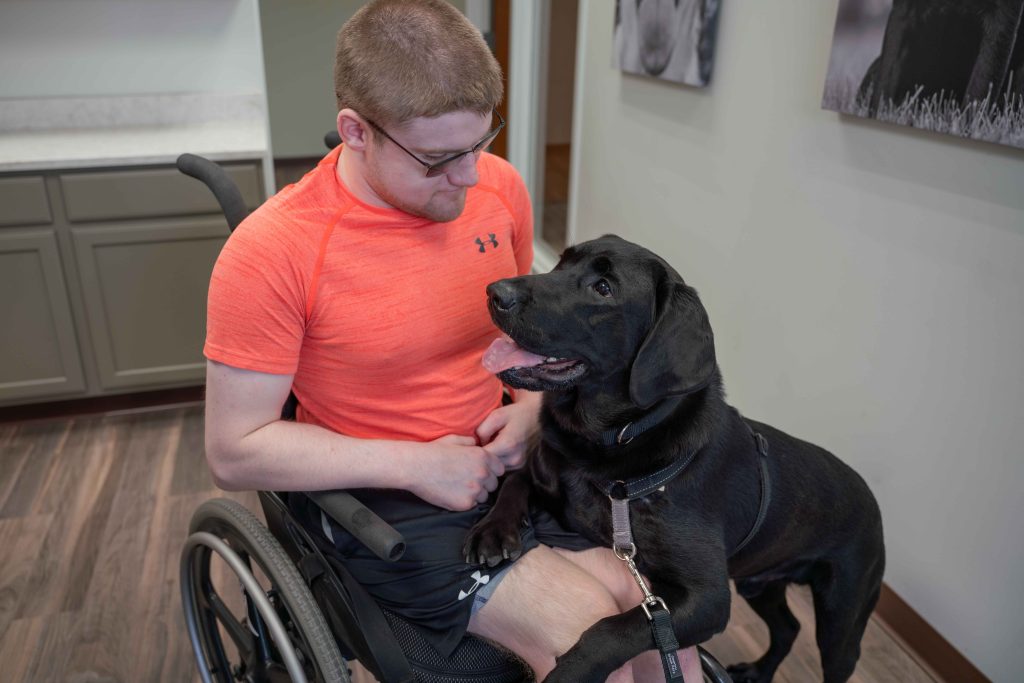
Educate your kids about disabilities and encourage appropriate and respectful behavior.
As previously mentioned, many kids may not understand why someone needs a service dog, so this is also a great time to educate children about disabilities and encourage them to follow the same service dog etiquette adults do.
Children are curious and may accidentally ask inappropriate questions about someone’s disability when they see a service dog team. It’s likely that you won’t have all the perfect answers to these questions, but it is still important to explain that kindness, sensitivity, and respect go a long way.
Children may not understand the importance or the need for service dogs until they are taught. Knowing how to teach kids about service dogs will encourage them to be kind, respectful, and appropriate the next time they see a service dog team.
Looking for more service dog education, uplifting stories, and more? Visit our blog!
ICAN trains and places assistance dogs with individuals in Indiana who have disabilities and provides foundational life skills to inmates through their experience as trainers. To learn more, visit our website and follow us on Facebook, Instagram, Twitter, and YouTube.
